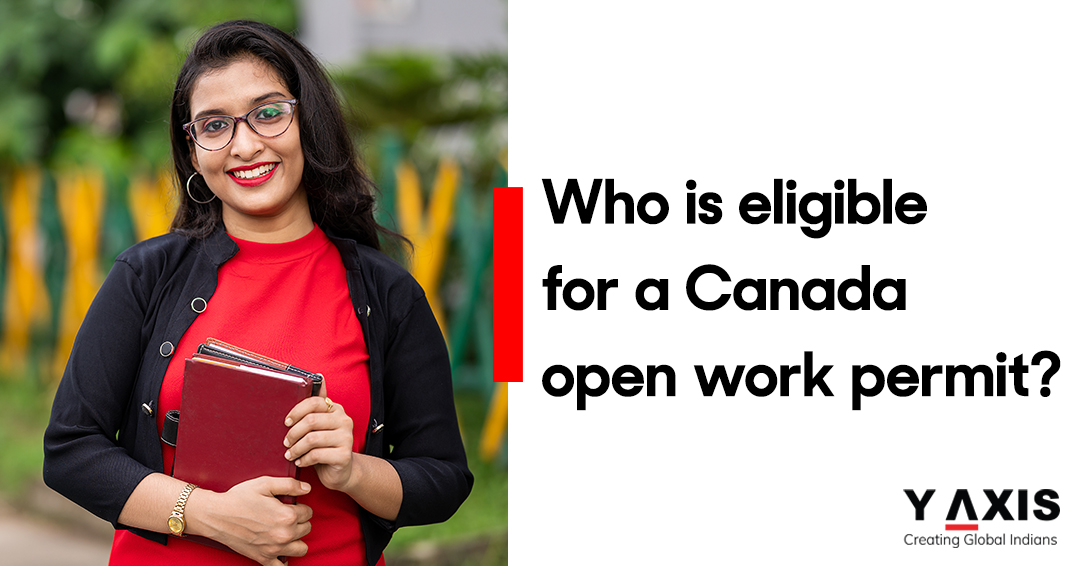Posted on March 15 2022
Who is eligible for a Canada open work permit?
By , Editor
Updated February 27 2024
If you wish to work in Canada, you will need a work visa. The Canada work visa is known as the Canada work permit. If you are not a permanent resident but receive a job offer from a Canadian company, you will need to apply for a work permit. The open-work permit and the employer-specific work permit are the two types of work permits that you can apply for to work in Canada. The open work permit isn't tied to any particular employment or firm.
Employer-specific job permits, on the other hand, allow foreign workers to work in a given position for a certain employer. If these permit holders want to change employment or take on additional duties within the same job, they must apply for a new work permit. While an employer-specific work permit is limited to a single employer, an open work permit may be subject to requirements that are specified on the permit. These include:
- Type of work
- Places where you can work
- Duration of work
Holders of the following visas can apply for an Open Work Permit
- Temporary Work Permits for spouses
- Post-Graduation Work Permit
- Temporary Resident Permit
- World Youth Program Permit
- Atlantic Immigration Pilot Program Spousal Permit
- Regular Open Work Permit
- Bridging Open Work Permit
Those who wish to work in Canada prefer the open work permit because of the flexibility if offers in terms of moving between companies, changing jobs in Canada, or relocating to different places in Canada. It is advantageous to Canadian employers because an open work permit does not require a Labor Market Impact Assessment (LMIA) when they wish to hire a foreign employee.
Eligibility for open work permit
There are many ways in which one can be eligible for an open work permit, let us explore some of the popular ways:
International students
International students who have finished a full-time study program of at least two years may be able to work in Canada for up to three years after graduation. Study programs that last longer than eight months but less than two years may be eligible for a PGWP that matches their duration. International students must attend a Designated Learning Institution (DLI) in Canada to be eligible. As a result of the pandemic, the IRCC has allowed for some modification in the eligibility standards. For example, between March 2020 and August 2022, IRCC will allow overseas students to complete 100% of their academic program online.
Citizens of foreign countries with reciprocal agreements
International Experience Canada (IEC) is a program that allows international students from more than 30 nations to work in Canada. A Working Holiday visa may be available to young people aged 18 to 35. Participants do not need a job offer to participate in the IEC, but they must complete the eligibility requirements. Candidates must have the equivalent of $2,500 CAD in cash to pay expenditures, not be accompanied by dependents, and be allowed to Canada, among other requirements.
Spouses or common law partners of Canadians or temporary residents
Canadian spouses, temporary foreign employees, and international students have access to open work permit alternatives in Canada. If they apply under inland sponsorship and live in Canada with their partner, spouses of Canadian citizens and permanent residents may be eligible for a Spousal Open Work Permit. Temporary foreign workers' spouses may also be eligible for an open work permit. The temporary foreign worker must meet specific eligibility requirements, such as having a valid work visa for six months after receiving the open spousal work permit, among others.
Working in a National Occupational Classification (NOC) skill level of 0, A, or B; working in any occupation when accepted into an Atlantic Immigration Program (AIP) stream; working in any occupation with a provincial or territorial nomination from the Provincial Nominee Program (PNP); or working in any occupation and holding a Quebec Selection Certificate are the four conditions that the foreign worker must meet (CSQ). Depending on the condition of the temporary foreign worker, there are also other program-specific criteria that must be met. Finally, if spouses of international students can show the government that they are in a genuine relationship and that the international student is enrolled in an appropriate program, they may be able to obtain an open work permit.
Applicants for permanent residency
Bridging Open Work Permits (BOWPs) allow those who have filed for permanent residency in Canada to stay in the country while their application is being processed. A BOWP is available for the following immigration programs:
- Federal Skilled Worker Program
- Canadian Experience Class
- Federal Skilled Trades Program
- Provincial Nominee Program
- Quebec Skilled Workers
- Agri-Food Pilot Program
If a foreign national's temporary status expires before their permanent residency application is processed, the BOWP ensures that they do not have to leave their jobs or the country. It also means that employers are not required to obtain an LMIA-based work permit in order to keep their international workers. The Canada open work permit is a good option to those who are looking for a job in Canada because of its flexibility features and relaxed eligibility requirements when compared to other work permits offered by Canada.
Tags:
Canada open work permit
Work in Canada
Share
Y - Axis services
Get it on your mobile
Get News Alerts
Contact Y-Axis

